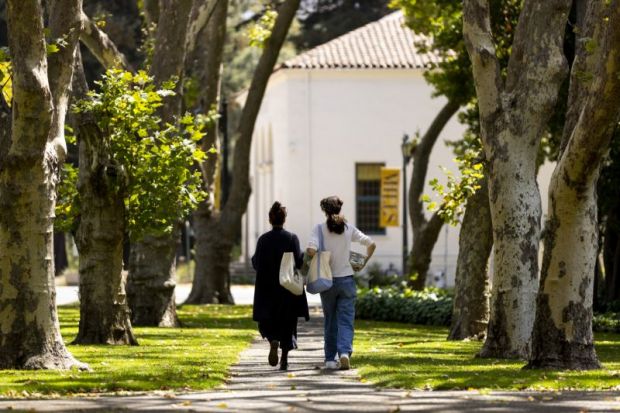Northeastern University has pledged to preserve the mission of Mills College after completing the acquisition of the campus near Silicon Valley, which it sees as a key element in its ambition to secure a worldwide academic research footprint.
The campus, Northeastern’s 10th satellite, is currently a long-established women-only racially diverse liberal arts institution of architectural gems and manicured lawns in the forested hills overlooking downtown Oakland, twice the size of its new parent university’s Boston home.
Northeastern is talking of keeping the progressive social mission of Mills and some of its liberal arts focus while multiplying its nearly 1,000-student enrolment into a major research hub for the US high-tech capital.
“We certainly imagine in the coming years that it will be several thousand students at Mills,” Northeastern’s provost, David Madigan, said shortly after the takeover was finalised.
With Northeastern already operating two smaller campuses in the San Francisco area, the addition of 135 acres at Mills “opens up all kinds of new possibilities for us”, Professor Madigan told Times Higher Education.
The purchase is part of long-developing strategy at Northeastern, a local commuter school as recently as the 1990s that now boasts campuses in cities that include London, Toronto, Seattle and Vancouver, with expectations of soon adding a location in Asia.
Northeastern was clear, the provost said, that it intended to keep growing as a top research institution with substantial physical presences in strategic parts of the world.
“We are a global university, and we think we can maximise our positive impact in the world by being ever more global,” Professor Madigan said.
Mills College dates back to 1852. As with many small private US institutions of late, it struggled with years of enrolment declines and operating losses that were exacerbated by the pandemic. Its president, Elizabeth Hillman, conceded the inevitable earlier this year, saying that Mills would convert from a degree-granting college to an institute promoting women’s leadership.
Northeastern then stepped in with its offer to take over operations, including a promise to keep faculty on the payroll, meet all financial and graduation commitments to existing Mills students, have Professor Hillman remain as campus president, and fulfil her Mills Institute concept as a centre for advancing women in leadership and minority students in higher education.
Alumni and allies protested, with many insisting that Mills could recover its financial health. Some tried to block the acquisition in court before the deal was finalised. It takes effect next July, creating an all-gender campus.
Experts on education and high-tech hailed Northeastern’s move as inspired, given the dearth of educational options around Silicon Valley for people hoping to answer the robust demand for the area’s high-paying jobs.
Professor Madigan, describing Northeastern’s plans, did not deny that kind of thinking. “It’s definitely part of the equation,” he said.
Yet he repeatedly affirmed the university’s commitment to maintaining the socially oriented mission of Mills. “We’re excited about the 150 years of tradition there – we want to build on it and be respectful of it and take advantage of it,” he said.
It’s too early, though, he said, for key details, such as what kinds of courses will be retained from the Mills catalogue and whether any form of a liberal arts institution might ultimately remain there.
Elements that look clearer, he said, include building new laboratory facilities in biotechnology and other scientific fields; and making Mills one of many domestic and worldwide options for Northeastern students who want to stay for a semester or two, or for an entire four-year degree programme.
Register to continue
Why register?
- Registration is free and only takes a moment
- Once registered, you can read 3 articles a month
- Sign up for our newsletter
Subscribe
Or subscribe for unlimited access to:
- Unlimited access to news, views, insights & reviews
- Digital editions
- Digital access to THE’s university and college rankings analysis
Already registered or a current subscriber? Login







